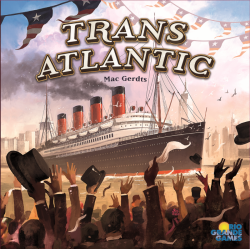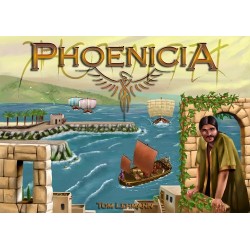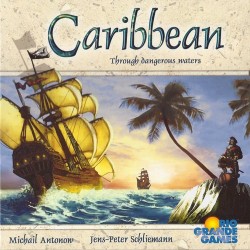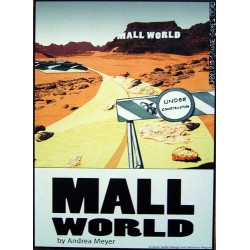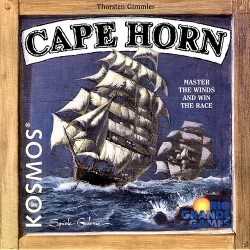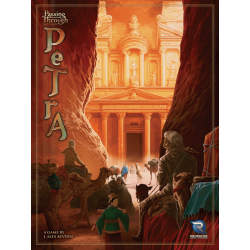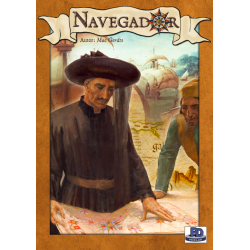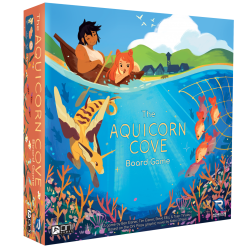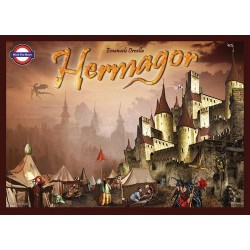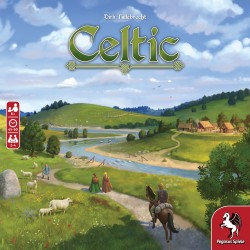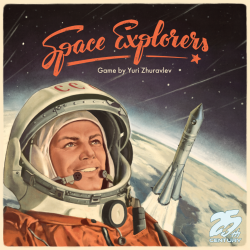No products in the cart.
Transatlantic
Transatlantic is a game for 2-4 players, ages 14 and up.
2 to 4 players lead their own shipping companies, which transport freight, mail, and passengers around the globe. They purchase new steamships from the market, each of them historical with their individual technical data (tons, knots etc.).
Phoenicia
Empires rise and fall. In the buffer areas and crossroads between civilizations, however, a clever ruler can sometimes adopt new ideas, establish trade, and found a city state.
Caribbean
The board shows the Caribbean in the 18th century. Six pirate ships lie in wait on the sea. They are ready to pillage the rich ports or to rob the booty from other ships. The sea is divided into spaces. Each player has three safe havens marked in his color on the board.
Submarine
Evidence of Atlantis! Is this mythic civilization a reality? Pictures from the oceanic bathyscaphe Neptune XIII seem to prove the existence of an ancient civilization under the sea. It discovered what may be vestiges of the mythic civilization of Atlantis.
Mall World
Players compete in the building of Mall World. It is scheduled to be the largest indoor shopping mall in the world. In the planning, it is important to get the right shops in the right locations.
Cape Horn
Before the opening of the Panama Canal, ships sailed from the east coast to the west coast of North or South America via Cape Horn. They held races from New York to San Francisco for those daring enough to test their skills against the elements.
Imperial
Each player represents an international investor. The players attempt to increase their capital and gaining influence in the most powerful European nations.
Passing Through Petra
At the intersection of the most well-traveled trade routes in the old world lies a city within rose-colored cliffs. A place where caravans miles long enter the city, through a narrow canyon called “the Siq.” Inside, traders from faraway lands find shelter and a place to trade their wares among the stunning buildings carved into towering red rocks.
Navegador
In the 15th century, the Portuguese Prince Henry the Navigator (Henrique o Navegador) summoned the best cartographers and navigators of his time and instructed them to explore the shores of the African coastline . They thereby won expertise in navigation and shipbuilding, heralding the Age of Exploration and enabling Portugal to later to find a sea trade route to India and China. In the height of its power Portugal controlled the sea trade from Brazil to Japan and attained overwhelming wealth with the trade monopoly on spices.
The Aquicorn Cove
In Aquicorn Cove, players work together to rebuild their small fishing village after a devastating storm, while maintaining a balance with the natural world. Luckily, the waters of their cove are home to the beautiful and benevolent Aquicorns, who can help them learn to live in harmony with the ocean. To win, the villagers must feed and grow their village and help restore the health of the reef and the aquatic ecosystem.
Hermagor
Hermagor
In a distant land, many years ago there rose a great and wealthy city. Its name, now forgotten by most, was Hermagor. Commerce was the source of its richness, because from all its territory men, artisans, and adventurers brought to the city all kinds of merchandise to sell there: weapons, ancient books, precious relics, and the rare dragon eggs.
Celtic
The Celtic Lord of the Wetterau is looking for am successor. To prove themselves worthy, players have to travel the region and trade with neighboring tribes. Each turn they have to perform one movement with their family members – other players at their starting location can decide to join them. While some locations allow to collect goods, others have to be visited to fulfill goal cards which grant influence (victory points). The game ends immediately once a player fulfilled five goal cards or chooses to reveal that they’ve collected one good of every kind. Players then tally up their points and the most influential Celt wins.
Space Explorers
The conquest of space was one of the greatest achievements of the 20th century.
In 1957, the first satellite - named Sputnik 1- was launched into orbit. Just four years later, Yuri Gagarin was the first human in space, aboard the spaceship Vostok 1.
Flotilla
Flotilla
In 1954, with an explosion over a hundred thousand times more powerful than even the wildest estimates, the Castle Bravo nuclear test obliterated the Bikini Atoll, and ruptured the Earth down to its mantle.
As water levels rose in the aftermath, the remnants of humanity fled their homes and took to the sea. World leadership came together to build a massive Flotilla, mankind’s last bastion of civilization.

